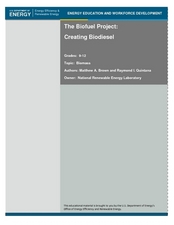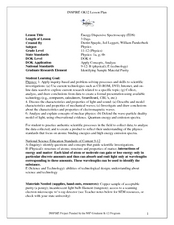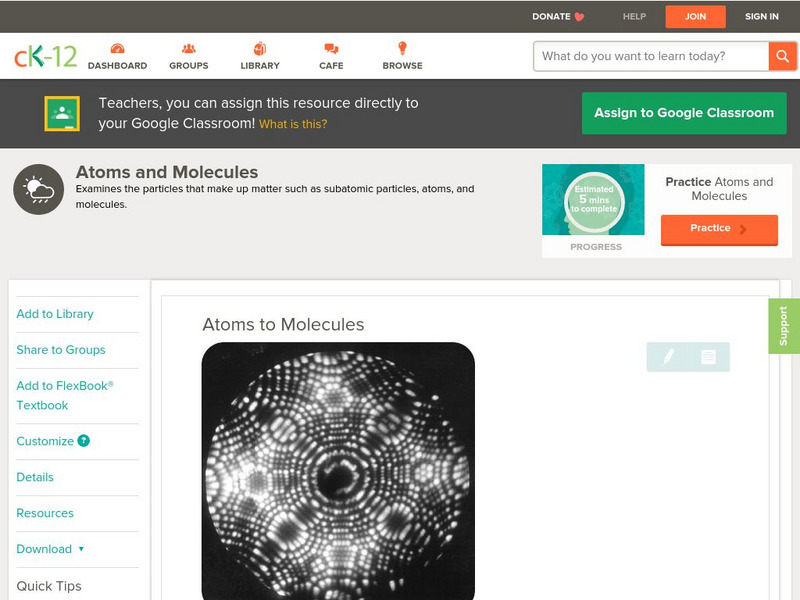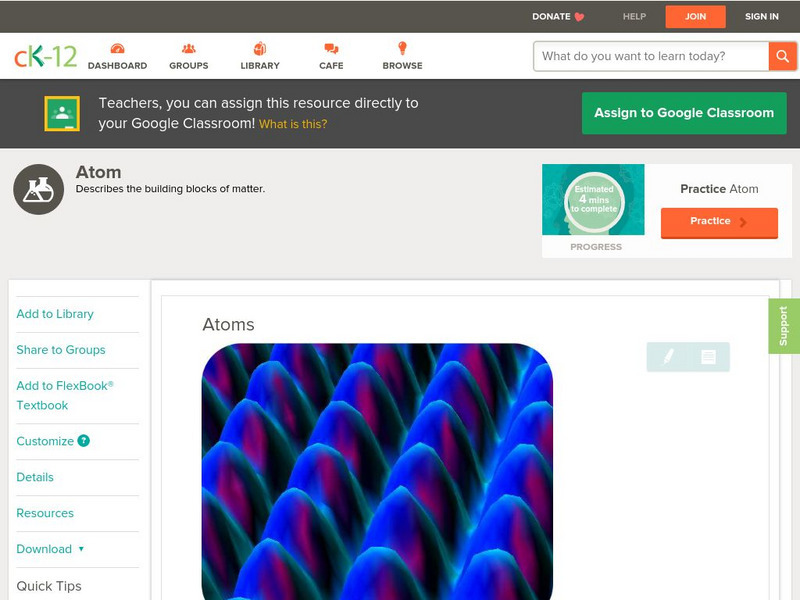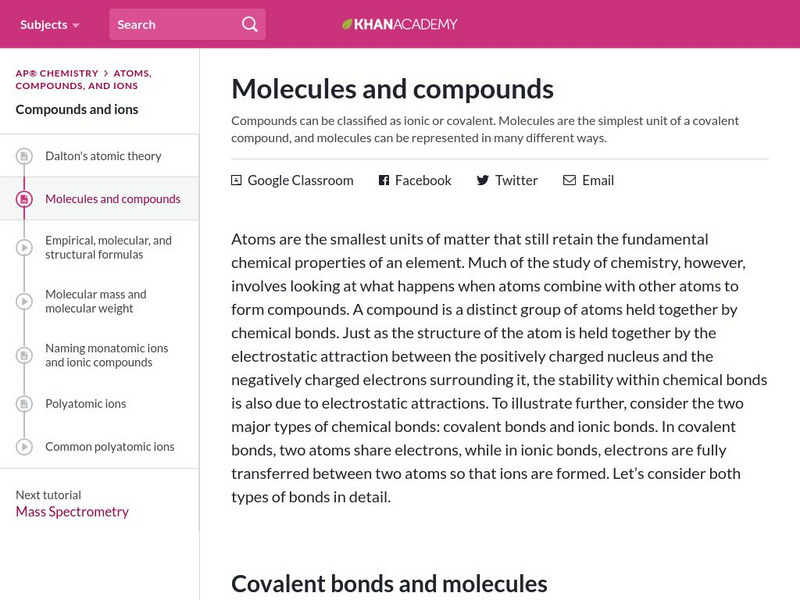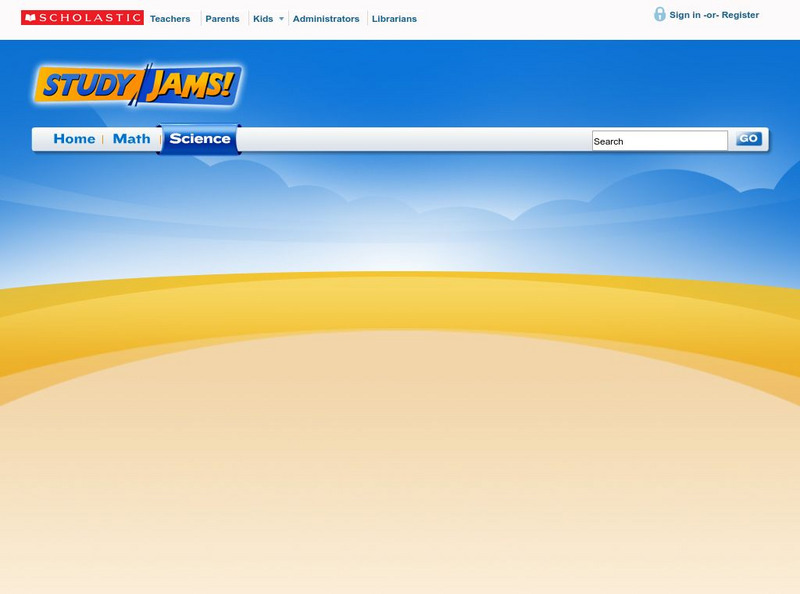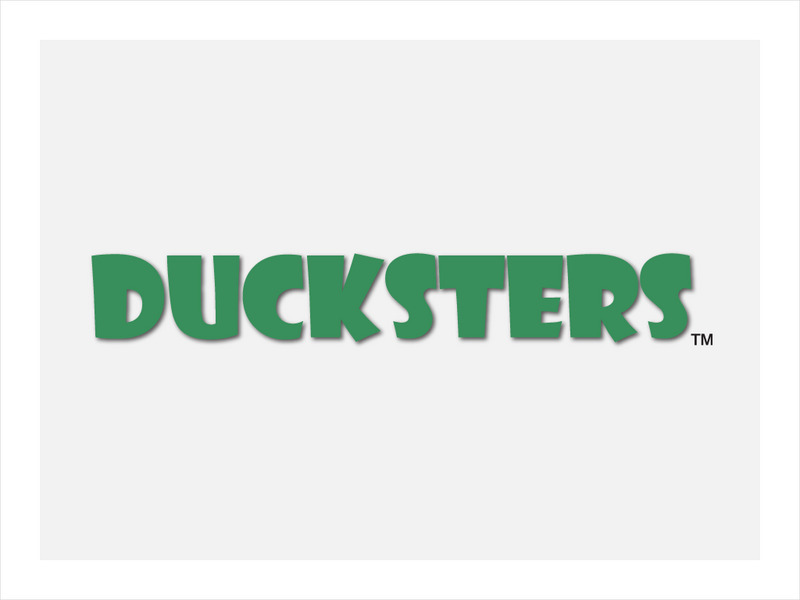Teach Engineering
What is a Nanometer?
Teams learn about the size of a nanometer by measuring objects and converting those measurements. A worksheet then tests the groups' abilities to use nanometers by having them determine the size of objects that are too small to...
Perkins School for the Blind
Mixtures and Solutions
Mixtures and solutions are different; one can be separated fairly easily and the other cannot. This hands-on experiment was written specifically for learners with visual impairments or blindness. They will use lemonade and trail mix to...
Curated OER
The Bio-fuel Project: Creating Bio-diesel
Students investigate bio-fuel. In this investigative lesson, students create bio-fuel from vegetable oil waste. Students will analyze, predict, collect and synthesize data from their experiments with bio-fuel.
Curated OER
Energy Dispersive Spectroscopy
Young scholars calculate the values of electron binding energies. In this physics lesson, students solve for different wavelength characteristics of X-rays. They present their findings to the class.
Curated OER
Grating Spectrometer
Students calculate the Balmer series. In this physics lesson, students observe hydrogen lamp spectra using spectrometers. They calculate wavelength and compare them with their theoretical calculations.
Curated OER
Classifying Matter Game
Students identify the different states of matter. In this chemistry lesson, students differentiate the physical properties of the three states. They apply what they learned by playing a team game at the end of the lesson.
CK-12 Foundation
Ck 12: Earth Science: Atoms to Molecules Study Guide
Understand the basic structure of atoms and molecules in the Earth's crust.
Concord Consortium
Concord Consortium: Science of Atoms and Molecules: Nucleic Acids and Proteins
Through this activity, students work with macromolecules, proteins and nucleic acids. The focus is on the atomic structure of proteins, how linear polymers are made, and the surface charges of the resulting polymers. . Multiple-choice...
CK-12 Foundation
Ck 12: Earth Science: Atoms to Molecules
[Free Registration/Login may be required to access all resource tools.] Examine the composition of matter.
CK-12 Foundation
Ck 12: Earth Science: Atoms to Molecules
[Free Registration/Login may be required to access all resource tools.] Examine the composition of matter.
CK-12 Foundation
Ck 12: Physical Science: Atoms
[Free Registration/Login may be required to access all resource tools.] Atoms and how they are related to elements, and the particles that make up atoms.
CK-12 Foundation
Ck 12: Atoms to Molecules
[Free Registration/Login may be required to access all resource tools.] Examine the composition of matter.
Concord Consortium
Concord Consortium: Stem Resources: Electrons in Atoms and Molecules
A module with animations, explanations, and questions about the importance of electrons in the structure of an atom. Understand the definition and locations of electrons in the atom. Explore the role of electrons in bonding, polarity,...
CK-12 Foundation
Ck 12: Fifth Grade Science: Physical Science: Types of Matter
[Free Registration/Login may be required to access all resource tools.] Discusses elements, atoms, compounds, molecules, and crystals. Looks at mixture and different types of them.
Khan Academy
Khan Academy: Molecules and Compounds
Article defines and explains compounds which are either ionic or covalent and molecules which are the simplest unit of a covalent compound. Molecules can be represented in many different ways.
Utah State Office of Education
Utah Science: Matter
Discover atoms and molecules which make up matter, motion of atoms and how to measure the mass, volume and density of matter.
Utah State Office of Education
Utah Science: It All Adds Up!
Atoms and molecules come together to create matter. What happens to the weight of matter when it is frozen? Can matter be destroyed? Check out these activities to clearly understand how this works.
Thomas Jefferson National Accelerator Facility
Jefferson Lab: Atoms, Elements and Molecules: Questions and Answers
Read common questions and answers about atoms, elements and molecules.
American Association for the Advancement of Science
Aaas: Project 2061: Topic: Atoms, Molecules, and States of Matter
[Free Registration/Login Required] Create a science test that checks for student understanding in science, for common misconceptions, as well as for correct ideas. This is a list of key ideas related to Atoms, Molecules, and States of...
Texas Education Agency
Texas Gateway: Atomic and Molecular Explanation of Pressure and Temperature
Learn how to calculate the kinetic energy of a gas molecule, describe the relationship between the temperature of a gas and the kinetic energy of atoms and molecule, and describe the distribution of speeds of molecules in a gas. The...
Science Buddies
Science Buddies: Study Chirality With a Homemade Polarimeter
Some molecules can be either left- or right-"handed." The left- and right-handed molecules have the same number and type of atoms, and their chemical structures look identical, but they are actually mirror images of each other. Many...
Scholastic
Scholastic: Study Jams! Science: Matter: Atoms: Protons, Neutrons, Electrons
A video and a short quiz on the parts of an atom, the periodic table, and molecules.
Ducksters
Ducksters: Kids Science: Molecules
Kid's learn about the science of the molecules. Tiny chemistry and compounds of atoms and elements make up all matter.




